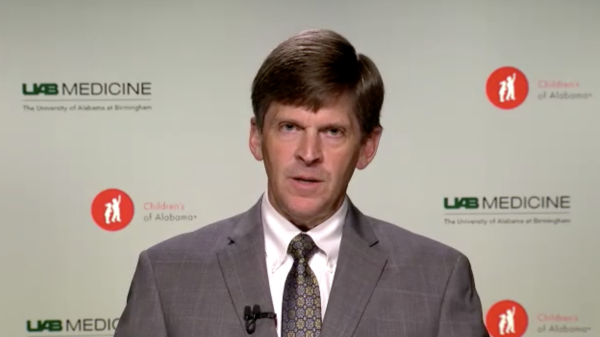The Alabama Health Committee held a lengthy meeting on a bill to legalize medical cannabis on Wednesday. The meeting included a public hearing where people for and against the legislation made their opinions heard. Following the public hearing, the committee debated a number of proposed amendments to the legislation.
Senate Bill 46 is sponsored by state Sen. Tim Melson, R-Florence.
The legislation would give the public a 30-day comment period before a marijuana dispensary could be located in a community. Counties and cities can deny applications for a dispensary in their community. Doctors and pharmacists will have access to the databank of patients with a medical marijuana card. There will be no reciprocity with other states. The bill establishes the Medical Cannabis Commission to tightly regulate the medical marijuana industry in the state.
Several people spoke for and against SB46 at the public hearing.
Christine Carr is a registered nurse and certified nurse anesthetist who spoke against the bill:
“I have a lot of experience in trauma and anesthesia general anesthesia, and pain specialist, I do this every day,” Carr said. “SB46 is not compassion. This current bill is a business plan that is disguised as a healthcare bill and it is full of inaccuracies faulty knowledge base, bad policies that will increase risk to health and public safety while it places profit before the patient. The result is a dangerous bill that is anti-science, anti-medicine, and anti-patient.”
“There is no actual scientific evidence that marijuana is profound for pain,” Carr said. “In fact where you have legal marijuana opioids increase. Where there is weed opiates you will need. Marijuana is more than a gateway drug, it is a biochemical slave master. We cannot have it in our state.”
“Marijuana is the number one substance found in completed teen suicide,” Carr said. “In Texas it was found that marijuana was the number one drug found in incidents of deaths from child neglect and abuse. It increases teen suicide psychosis and depression. Any marijuana given in utero and even to men who will have children in the future leads to an increased rate of autism in children.”
“The Americans Heart Association says no,” Carr said. “It causes an increase of heart attack stroke and is an inflammatory that affect the artery valves. Mental illness increases significantly. It causes increases in anxiety, a-motivational syndrome, and violent psychotic episodes especially when given to teenagers and middle teenagers especially.”
“States have struggled with regulation issues,” Carr said. “Oregon has recently completed an audit and found that they cannot honestly say that their product is safe for human consumption.”
Chey Lindsey Garrigan is the president of the Alabama Cannabis Industry Association and spoke in favor of the bill:
“Medical Marijuana has shown to have demonstrable medical benefits for a number of serious medical conditions,” Garrigan said. “The Alabama Cannabis Industry Association is in favor of Senate Bill 46 – The Compassion Act. Residents of our great state should not have to travel out of state to receive medical treatment for themselves or their children.”
“39 states have already legalized medical cannabis,” Garrigan said. “Residents of Alabama are having to leave the state for treatment or break state law.”
“SB46, The Compassion Act, tightly regulates medical cannabis and avoids some of the excesses that occurred in other states,” Garrigan said. “We applauded Senator Tim Melson for his work in crafting this legislation over the past 3 years. We ask members of the House Health Committee to support this much needed legislation and to bring it forward.”
Dr. Marsha Raulerson, a pediatrician in Brewton and the former chair of the Alabama Medical Association.
“I have been licensed to practice medicine in Alabama since 1979,” Raulerson said. “Medical marijuana laws in 35 states have led to the misconception that marijuana is not harmful, but it is in both the short term and the long term.”
“It is the most prevalent drug found in traffic crashes,” Raulerson said. “Its use in teens has resulted in increased dropouts, lower grade point averages, and has led to increased college dropouts as well.”
“It is addictive,” Raulerson said. “One in ten marijuana users become addicted. That rises to one in six if they start using before the age of 18.”
“There are three or four drugs that have been approved by the FDA,” Raulerson said. “It is approved for seizures and nausea from cancer. The FDA does not approve any treatments for marijuana except those.”
Raulerson said that the presence of marijuana has increased in traffic deaths where marijuana has been legalized and black market marijuana has actually increased not decreased.
“Marijuana is not a medicine,” Raulerson said. “I cannot write a prescription for it and a pharmacist can not fill it.”
Melissa Mullins is the executive administrative assistant for Republicans Against Medical Prohibition.
“I am a wife of an epileptic and the mother of an autistic child,” Mullins said.
“My husband experienced a very serious seizure and there was nothing I could do for it,” Mullins said. “My autistic daughter was there in terror. Neither he nor her would have had to experience that if Alabama allowed medical marijuana.
“His condition has left him unable to work and provide for his family,” Mullins said. “If you had asked me five years ago if I would be an advocate for marijuana legislation I would have said no.
“I should not have to drive my daughter half way across the country away from her grandparents for treatment,” Mullins said. “Please allow help for my family and other families.”
Dr. Laura Lee is the executive director of the Alabama Chapter of the Academy of Pediatrics.
Lee said that she, “Opposes the legalization of marijuana outside of the FDA process.”
“Few public studies have been done in the use of cannabinoids in juveniles,” Lee said. “This is a violation of federal law. This is a scheduled one controlled substance. Currently there are four medications that have been approved by the FDA.”
“The effects of marijuana are neurotoxic to the fetal brain,” Lee warned.
Lee warned that this was a “Slippery slope” that would lead to many more impaired drivers on the road.
“Since California has been legalized, traffic deaths have more than doubled due to the addiction of marijuana,” Lee said. “Marijuana is a gateway drug.”
Antoine Mordican is with the Alabama chapter of Minorities for Medical Marijuana and a hemp farmer in the Bessemer area.
Mordican is originally from Illinois. He came to Alabama in 2009 to study at Alabama A&M. He loved it here and has decided to work and have a career here.
Mordican said that introduction of the medical marijuana industry “offers great opportunities” for people in Alabama and that the climate in the state allows them to “produce the best product.”
Mordecan said that his aunt suffered from a battle with breast cancer and that medical marijuana allowed her to extend her life for another decade after she was first diagnosed.
“My mom was opposed to marijuana but became enlightened” after her own breast cancer diagnoses. With the help of medical marijuana she “was able to ultimately beat breast cancer.”
Laura Liveoak is a mother whose daughter was killed when a motorist, impaired by marijuana, struck and killed her in a car wreck.
Sen. Melson said that the person that hit and killed her daughter was using recreational marijuana and likely had levels in his system far higher than the maximum that is allowed in this legislation.
Melson agreed with Lee on the use of marijuana in children.
“This has no place in the pediatric population unless it is a pretty desperate recognized condition for which there is no current therapy,” Melson said.
The House Health Committee amended the legislation and will vote on it in a special called meeting on Thursday morning.





















































